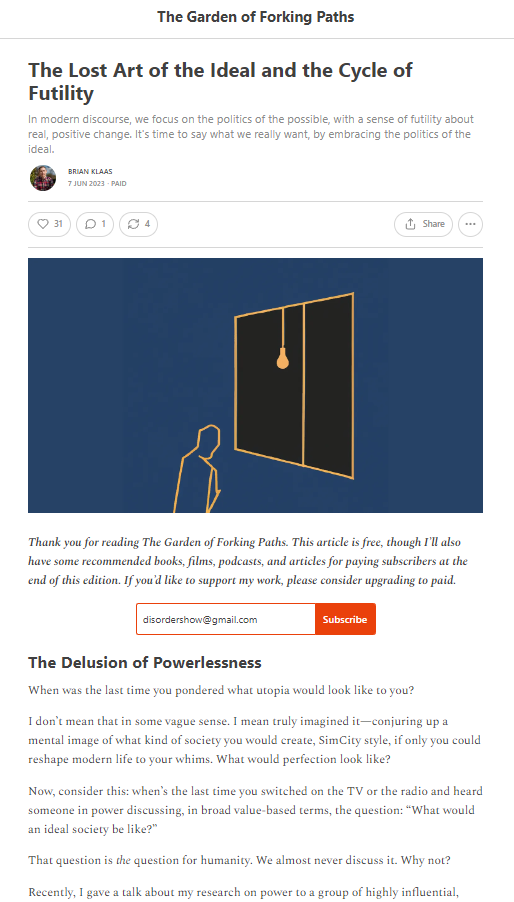The Lost Art of the Ideal and the Cycle of Futility
When was the last time you pondered what utopia would look like to you?
I don’t mean that in some vague sense. I mean truly imagined it—conjuring up a mental image of what kind of society you would create, SimCity style, if only you could reshape modern life to your whims. What would perfection look like?
Now, consider this: when’s the last time you switched on the TV or the radio and heard someone in power discussing, in broad value-based terms, the question: “What would an ideal society be like?”
That question is the question for humanity. We almost never discuss it. Why not?
Recently, I gave a talk about my research on power to a group of highly influential, highly powerful people. It was awkward. I was telling people who were in charge that our systems of power are broken—because our systems put the wrong people in charge.
I was talking about them.
The audience was surprisingly receptive. Perhaps this shouldn’t have surprised me. Rich people think other rich people are selfish and greedy—not like themselves!—just as powerful people think other powerful people are to blame for society’s ills.
But when I rattled off a series of my ideas for reforms that would make systems of power function better, the nods and smiles turned to stony-faced skepticism. “But is that realistic?” they asked, one after the other. “Will anyone actually do that?”
I hear these refrains constantly. I get it. We all feel powerless. Trying to sway a politician who’s caught in the vortex of hyper-polarization and afflicted by the curse of knowingness in a broken political system seems like a Quixotic waste of time. But this was a group of people who make the decisions, or who influence those who make the decisions, about how to run society. These people play SimCity for real. And still it came: “But is that realistic?”
This is the self-fulfilling delusion of powerlessness.
How can anything be realistic if even the rich and powerful see themselves as passive observers to forging a better society? And how can we build a better society over the long run if the only options we ever consider are those that are already considered realistic right now…?


